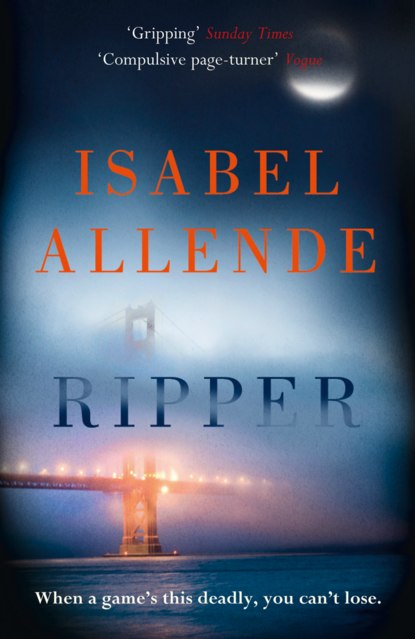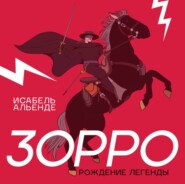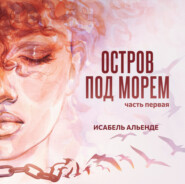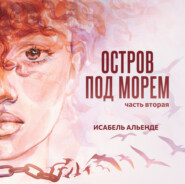По всем вопросам обращайтесь на: info@litportal.ru
(©) 2003-2024.
✖
Ripper
Настройки чтения
Размер шрифта
Высота строк
Поля
In civilian life Ryan was awkward, a fish out of water. He found it difficult to make small talk, and his long silences sometimes seemed insulting to people who didn’t know him well. The fact that San Francisco was the center of a thriving gay community meant it was teeming with beautiful, available, successful women very different from the girls Ryan was used to encountering in dive bars or hanging around the barracks. In the right light, Ryan could easily pass for handsome, and his disability—aside from giving him the martyred air of a man who has suffered for his country—offered a good excuse to strike up a conversation. He was never short of offers, but when he was with the sort of intelligent woman he found attractive, he worried so much about making a good impression that he ended up boring them. No California woman would rather spend the evening listening to war stories, however heroic, than go clubbing—no one, that is, except Jennifer Yang, who had inherited not only the infinite patience of her ancestors in the Celestial Empire but also the ability to pretend she was listening when actually she was thinking about something else. Yet from the very first time they met among the sequoias in Samuel P. Taylor State Park, Ryan had felt comfortable with Indiana Jackson. A few weeks later, at the Vietnamese restaurant, he realized he didn’t need to rack his brains for things to talk about; half a glass of wine was all it took to loosen Indiana’s tongue. The time flew by, and when he checked his watch, Ryan saw it was past midnight and the only other people in the restaurant were two Mexican waiters clearing tables with the disgruntled air of men who had finished their shift and were anxious to get home. It was on that night, three years ago, that Ryan and Indiana had become firm friends.
For all his initial skepticism, after three or four months the ex-soldier was forced to admit that Indiana was not just some crazy New Age hippie; she genuinely had the gift of healing. Her therapies relaxed him; he slept more soundly, and the cramps and spasms had all but disappeared. But the most wonderful thing about their sessions together was the peace they brought him: her hands radiated affection, and her sympathetic presence stilled the voices from his past.
As for Indiana, she came to rely on this strong, silent friend, who kept her fit by forcing her to jog the endless paths and forest trails in the San Francisco area, and bailed her out when she had financial problems and couldn’t bring herself to approach her father. They got along well, and though the words were never spoken, she sensed that their friendship might have blossomed into a passionate affair if she wasn’t still hung up on her elusive lover Alan, and Ryan wasn’t so determined to push away love in atonement for his sins.
The summer her mother met Ryan Miller, Amanda Martín had been fourteen, though she could have passed for ten. She was a skinny, gawky girl with thick glasses and a retainer who hid from the unbearable noise and glare of the world behind her mop of hair or the hood of her sweatshirt; she looked so unlike her mother that people often asked if she was adopted. From the first, Ryan treated Amanda with the exaggerated courtesy of a Japanese gentleman. He made no effort to help her during their long bike ride to Los Angeles, although, being an experienced triathlete, he had helped her to train and prepare for the trip, something that won him the girl’s trust.
One Friday morning at seven, all three of them—Indiana, Amanda, and Ryan—set off from San Francisco with two thousand other keen cyclists wearing red AIDS awareness ribbons, escorted by a procession of cars and trucks filled with volunteers transporting tents and provisions. They arrived in Los Angeles the following Friday, their butts red-raw, their legs stiff, and their minds as free of thoughts as newborn babes. For seven days they had pedaled up hills and along highways, through stretches of beautiful countryside and others of hellish traffic. To Ryan—for whom a daily fifteen-hour bike ride was a breeze—the ride was effortless, but to mother and daughter it felt like a century of agonizing effort, and they only got to the finish line because Ryan was there, goading them like a drill sergeant whenever they flagged and recharging their energy with electrolyte drinks and energy bars.
Every night, like an exhausted flock of migrating birds, the two thousand cyclists descended on the makeshift campsites erected by the volunteers along the route, wolfed down five thousand calories, checked their bicycles, showered in trailers, and rubbed their calves and thighs with soothing ointment. Before they went to sleep, Ryan applied hot compresses to Indiana and Amanda and gave them little pep talks about the benefits of exercise and fresh air.
“What has any of this got to do with AIDS?” asked Indiana on the third day, having cycled for ten hours, weeping from sheer exhaustion and for all the woes in her life. “What do I know?” was Ryan’s honest answer. “Ask your daughter.”
The ride may have made only a modest contribution to the fight against AIDS, but it cemented the budding friendship between Ryan and Indiana, while for Amanda it led to something impossible: a new friend. This girl, who looked set to become a hermit, had precisely three friends in the world: her grandfather, Blake Jackson; Bradley, her future boyfriend; and now Ryan Miller, the Navy SEAL. The kids she played Ripper with didn’t fall into the same category; she only knew them within the context of the game, and their relationship was entirely centered around crime.
Tuesday, 3 (#ulink_80c0e220-29d5-5350-9bfd-47bc8f75c8a7)
Amanda’s godmother, Celeste Roko, the most famous astrologer in California, made her “bloodbath” prediction the last day of September 2011. Her daily show aired early, before the morning weather forecast, and repeated after the evening news. At fiftysomething, thanks to a little nip and tuck, Roko looked good for her age. Charming on screen and a dragon in person, she was considered beautiful and elegant by her many admirers. She looked like Eva Perón with a few extra pounds. The set for her TV show featured a blown-up photo of the Golden Gate Bridge behind a fake picture window and a huge model of the solar system, with planets that could light up and be moved by remote control.
Psychics, astrologers, and other practitioners of the mysterious arts tend to make their predictions on New Year’s Eve, but Madame Roko could not bring herself to wait three months before warning the citizens of San Francisco of the horrors that lay in store for them. Her prophecy was of such magnitude that it captured the public imagination, went viral on the Internet. Her pronouncement provoked scathing editorials in the local press and hysterical headlines in the tabloids, speculating about terrible atrocities at San Quentin State Prison, gang warfare between blacks and Latinos, and an apocalyptic earthquake along the San Andreas Fault. But Celeste Roko, who exuded an air of infallibility thanks to a former career as a Jungian analyst and an impressive number of accurate predictions, was adamant that her vision concerned murders. This provoked a collective sigh of relief among devotees of astrology, since it was the least dreadful of the calamities they had feared. In northern California, the chance of being murdered was one in twenty thousand; it was, everyone believed, a crime that happened to other people.
It was on the day of this prediction that Amanda and her grandfather finally decided to challenge the power of Celeste Roko. They were sick and tired of the influence Amanda’s godmother wielded over the family by pretending that she could foretell the future. Madame Roko was a temperamental woman with the unshakable belief in herself common to those who receive direct messages from the universe or from God. She never managed to sway Blake Jackson, who would have no truck with astrology, but Indiana always consulted Celeste before making important decisions, allowing her life to be guided by the dictates of her horoscope. All too often Celeste Roko’s astrological readings thwarted Amanda’s best-laid plans. When she was younger, for example, the planets had deemed it an inauspicious moment to buy a skateboard but a propitious time to take up ballet—which left Amanda in a pink tutu, sobbing with humiliation.
When she turned thirteen, Amanda discovered that her godmother was not in fact infallible. The planets had apparently decided that Amanda should go to a public high school, but Encarnación Martín, her formidable paternal grandmother, insisted she attend a Catholic boarding school. For once Amanda sided with Celeste, since a co-ed school seemed slightly less terrifying than being taught by nuns. But Doña Encarnación triumphed over Celeste Roko—by producing a check for the tuition fees. Little did she suspect that the nuns would turn out to be feminists in pants who challenged the pope, and used science class to demonstrate the correct use of a condom with the aid of a banana.
Encouraged by the skepticism of her grandfather, who rarely dared to directly challenge Celeste, Amanda questioned the relationship between the heavenly bodies and the fates of human beings; to her, astrology seemed as much mumbo-jumbo as her mother’s white magic. Celeste’s most recent prognostication offered grandfather and granddaughter a perfect opportunity to refute the predictive powers of the stars. It is one thing to announce that the coming week is a favorable one for letter-writing, quite another to predict a bloodbath in San Francisco. That’s not something that happens every day.
When Amanda, her grandfather, and her online buddies transformed Ripper from a game into a criminal investigation, they could never have imagined what they were getting themselves into. Precisely eleven days after Celeste Roko’s pronouncement, Ed Staton was murdered. This might have been considered a coincidence, but given the unusual nature of the crime—the baseball bat—Amanda began to put together a case file using information published in the papers, what little she managed to wheedle out of her father, who was conducting the investigation, and whatever her grandfather could dig up.
Blake Jackson was a pharmacist by profession, a book lover, and a frustrated writer until he finally took the opportunity to chronicle the tumultuous events predicted by Celeste Roko. In his novel, he described his granddaughter Amanda as “idiosyncratic of appearance, timorous of character, but magnificent of mind”—his baroque use of language distinguishing him from his peers. His account of these fateful events would end up being much longer than he expected, even though—excepting a few flashbacks—it spanned a period of only three months. The critics were vicious, dismissing his work as magical realism—a literary style deemed passé—but no one could prove he had distorted the events to make them seem supernatural, since the San Francisco Police Department and the daily newspapers documented them.
In January 2012, Amanda Martín was sixteen and a high school senior. As an only child, Amanda had been dreadfully spoiled, but her grandfather was convinced that when she graduated from high school and went out into the world that would sort itself out. She was vegetarian now only because she didn’t have to cook for herself; when she was forced to do so, she would be less persnickety about her diet. From an early age Amanda had been a passionate reader, with all the dangers such a pastime entails. Although the San Francisco murders would have been committed in any case, Amanda would not have been involved if an obsession with Scandinavian crime novels had not developed into a morbid interest in evil in general and premeditated murder in particular. Though her grandfather was no advocate of censorship, it worried him that Amanda was reading books like this at fourteen. His granddaughter put him in his place by reminding him that he was reading them too, so all Blake Jackson could do was give her a stern warning about their content—which of course made her all the more curious. The fact that Amanda’s father was deputy chief of the homicide detail in San Francisco’s Personal Crimes Division fueled her obsession; through him she discovered how much evil there was in this idyllic city, which could seem immune to it. But if heinous crimes happened in enlightened countries like Sweden and Norway, there was no point in expecting things to be different in San Francisco—a city founded by rapacious prospectors, polygamous preachers, and women of easy virtue, all lured by the gold rush of the mid-nineteenth century.
Amanda went to an all-girls boarding school—one of a handful that still remained since America had opted for the muddle of mixed education—at which she had somehow survived for four years by managing to be invisible to her classmates, although not to the teachers and the few nuns who still worked there. She had an excellent grade-point average, although the sainted sisters never saw her open a textbook and knew she spent most nights staring at her computer, engrossed in mysterious games, or reading unsavory books. They never dared to ask what she was reading so avidly, suspecting that she read the very books they enjoyed in secret. Only the girl’s questionable reading habits could explain her morbid fascination for guns, drugs, poison, autopsies, methods of torture, and means of disposing of dead bodies.
Amanda closed her eyes and took a deep breath of fresh winter-morning air. The smell of pine needles told her that they were driving through the park; the stench of dung, that they were passing the riding stables. Thus she could calculate that it was exactly 8:23 a.m. She had given up wearing a watch two years earlier so she could train herself to tell time instinctively, the same way she calculated temperature and distance; she’d also refined her sense of taste so that she could distinguish suspect ingredients in her food. She cataloged people by scent: her grandfather, Blake, smelled of gentleness—a mixture of wool sweaters and chamomile; Bob, her father, of strength—metal, tobacco, and aftershave; Bradley, her boyfriend, of sensuality, sweat and chlorine; and Ryan smelled of reliability and confidence, a doggy aroma that was the most wonderful fragrance in the world. As for her mother Indiana, steeped in the essential oils of her treatment room, she smelled of magic.
After her grandfather’s spluttering ’95 Ford passed the stables, Amanda mentally counted off three minutes and eighteen seconds, then opened her eyes and saw the school gates. “We’re here,” said Jackson, as though this fact might have escaped her notice. Her grandfather, who kept fit playing squash, took Amanda’s heavy schoolbag and nimbly bounded up to the second floor while she trudged after him, violin in one hand, laptop in the other. The dorm room was deserted: since the new semester did not begin until tomorrow morning, the rest of the boarders would not be back from Christmas vacation until tonight. This was another of Amanda’s manias: wherever she went, she had to be the first to arrive so she could reconnoiter the terrain before potential enemies showed up. Amanda found it irritating to have to share the dorm room with others—their clothes strewn across the floor, their constant racket; the smells of shampoo, nail polish, and stale candy; the girls’ incessant chatter, their lives like some corny soap opera filled with jealousy, gossip, and betrayal from which she felt excluded.
“My dad thinks that Ed Staton’s murder was some sort of gay revenge killing,” Amanda told her grandfather before he left.
“What’s he basing that theory on?”
“On the baseball bat shoved—you know where,” Amanda said, blushing to her roots as she thought of the video she’d seen online.
“Let’s not jump to conclusions, Amanda. There’s still a lot we don’t know.”
“Exactly. Like, how did the killer get in?”
“Ed Staton was supposed to lock the doors and set the alarm when he started his shift,” said Blake. “Since there was no sign of forced entry, we have to assume the killer hid in the school before Staton locked up.”
“But if the murder really was premeditated, why didn’t the guy kill Staton before he drove off? He couldn’t have known Staton intended to come back.”
“Maybe it wasn’t premeditated. Maybe someone sneaked into the school intending to rob the place, and Staton caught him in the act.”
“Dad says that in all the years he’s worked in homicide, though he’s seen murderers who panicked and lashed out violently, he’s never come across a murderer who took the time to hang around and cruelly humiliate his victim.”
“What other pearls of wisdom did Bob come up with?”
“You know what Dad’s like—I have to surgically extract every scrap of information from him. He doesn’t think it’s an appropriate subject for a girl my age. Dad’s a troglodyte.”
“He’s got a point, Amanda. This whole thing is a bit sordid.”
“It’s public domain, it was on TV, and if you think you can handle it, there’s a video on the Internet some little girl shot on her cell phone.”
“Jeez, that’s cold-blooded. Kids these days are so used to violence that nothing scares them. Now, back in my day . . .” Jackson trailed off with a sigh.
“This is your day! It really bugs me when you talk like an old man. So, have you checked out the juvenile detention center, Kabel?”
“I’ve got work to do—I can’t just leave the drugstore unattended. But I’ll get to it as soon as I can.”
“Well, hurry up, or I might just find myself a new henchman.”
“You can try! I’d like to see anyone else who’s prepared to put up with you.”
“You love me, Gramps?”
“Nope.”
“Me neither,” Amanda said, and flung her arms around his neck.
Blake Jackson buried his nose in his granddaughter’s mane of frizzy hair, which smelled of salad—she washed it with vinegar—and thought about the fact that in a few months she would be off to college, and he would no longer be around to protect her. He missed her already, and she had not even left yet. He flicked through fleeting memories of her short life, back to an image of the sullen, skeptical little girl who would spend hours hiding in a makeshift tent of bedsheets where no one was admitted except Save-the-Tuna, the invisible friend who followed her around for years, her cat Gina, and sometimes Blake himself, when he was lucky enough to be invited to drink make-believe tea from tiny plastic cups.
Where on earth does she get it from? Blake Jackson had wondered when Amanda—aged six—first beat him at chess. It could hardly be from Indiana, who floated in the stratosphere preaching love and peace half a century after the hippies had died out, and it wasn’t from Bob Martín, who had never finished a book in his life. “I wouldn’t worry too much about it,” said Celeste Roko, who had a habit of showing up unannounced, and who terrified Blake Jackson almost as much as the devil himself. “Lots of kids are precocious at that age, but it doesn’t last. Just wait till her hormones kick in, and she’ll nosedive to the usual level of teenage stupidity.”
But in this case the psychic had been wrong: Amanda’s intelligence had continued to develop throughout her teenage years, and the only impact her hormones had was on her appearance. At puberty she grew quickly, and at fifteen she got contact lenses to replace her glasses, had her retainer removed, learned to tame her shock of curly hair, and emerged as a slim young woman with delicate features, her father’s dark hair, and her mother’s pale skin, a young woman who had no idea how beautiful she was. At seventeen she still shambled along, still bit her nails, and still dressed in bizarre castoffs she bought in thrift stores and accessorized according to her mood.
When her grandfather left, Amanda felt, for a few hours at least, that she was master of her own space. Three months from now she’d graduate from high school—where she’d been happy, on the whole, despite the frustration of having to share a dorm room—and soon she’d be heading for Massachusetts, to MIT, where her virtual boyfriend, Bradley, was already enrolled. He’d told her all about the MIT Media Lab, a haven of imagination and creativity, everything she had ever dreamed of. Bradley was the perfect man: he was a bit of a geek, like her, had a quirky sense of humor and a great body. His broad shoulders and healthy tan, he owed to being on the swim team; his fluorescent yellow hair to the strange cocktail of chemicals in swimming pools. He could easily pass for Australian. Sometime in the distant future Amanda planned to marry Bradley, though she hadn’t told him this yet. In the meantime, they hooked up online to play Go, talked about hermetic subjects and about books.
Bradley was a science-fiction fan—something Amanda found depressing; more often than not science fiction involved a universe where the earth had been reduced to rubble and machines controlled the population. She’d read a lot of science fiction between the ages of eight and eleven before moving on to fantasy—imaginary eras with little technology where the difference between heroes and villains was clear—a genre Bradley considered puerile and pernicious. He preferred bleak dystopias. Amanda didn’t dare tell him that she’d read all four Twilight novels and the Millennium trilogy; Bradley had no time for vampires and psychopaths.
Their romantic e-mails full of virtual kisses were also heavily laced with irony so as not to seem soppy; certainly nothing explicit. The Reverend Mother had expelled a classmate of Amanda’s the previous December for uploading a video of herself naked, spread-eagled, and masturbating. Bradley had not been particularly shocked by the story, since some of his buddies’ girlfriends had made similar sex tapes. Amanda had been a little surprised to discover that her friend was completely shaven, and that she’d made no attempt to hide her face, but she was more shocked by the hysterical reaction of the nuns, who had the reputation of being tolerant.
While she messaged Bradley online, Amanda filed away the information her grandfather had managed to dig up on the Case of the Misplaced Baseball Bat, along with a number of grisly press cuttings she’d been collecting since her godmother first broadcast her grim prophecy. The kids who played Ripper were still trying to come up with answers to several questions about Ed Staton, but already Amanda was preparing a new dossier for their next case: the murders of Doris and Michael Constante.
Matheus Pereira, a painter of Brazilian origin, was another of Indiana Jackson’s admirers. But their love was strictly platonic, since Matheus devoted all his energies to his painting. Matheus believed that artistic creativity was fueled by sexual energy, and when forced to choose between painting and seducing Indiana—who didn’t seem interested in an affair—he chose the former. In any case, marijuana kept him in a permanent state of zoned-out bliss that didn’t lend itself to amorous schemes. Matheus and Indiana were close friends; they saw each other most days, and they looked out for each other. He was constantly harassed by the police, while she sometimes had problems with clients who got too fresh, and with Deputy Chief Martín, who felt he still had the right to interfere in his ex-wife’s affairs.
“I’m worried about Amanda,” Indiana said as she massaged Matheus with eucalyptus oil to relieve his sciatica. “Her new obsession is crime.”















